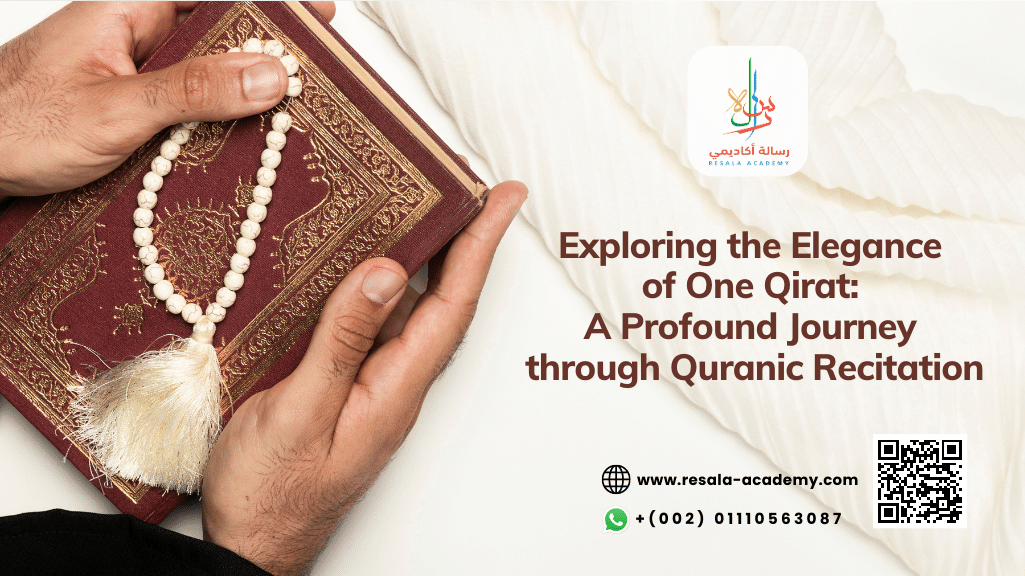Table of Contents
The Power of the 99 Names of Allah
Do you feel blessed and inspired when you hear the recitation of Allah’s 99 Names? The power behind those names cannot be underestimated, as it is through them that we are reminded of His omnipotence, benevolence, and mercy. It reminds us why He deserves our worship and love above all else. For every time we say one of these divine titles aloud or keep them in our hearts, a connection to Allah strengthens within us. We know that He is always with us – watching over us to provide protection and guidance – no matter what hardships come our way. So dive into the magnificent depths of your faith by exploring these Names, for they can bring immense blessings into your life if approached with sincere humility and reverence.
Definition of 99 Names of Allah
Allah – the One and Only God, who is most merciful, compassionate and loving towards His creations. The 99 Names of Allah (also known as Asma-ul Husna) in Islam are the names of Allah which signify different aspects and attributes of Him. These names represent various divine qualities that He has been described with in the Qur’an or by Prophet Muhammad’s teachings. They have been used since ancient times to invoke peace, security, and blessings in a person’s life as it is believed that each name contains immense power within itself. These sacred titles provide us with an understanding of Who Allah really is – our Creator, Sustainer and Protector. Through them we can gain solace from our own emotional distress, physical suffering and spiritual struggles. They can also open up a realm of hope, faith and love in our lives that will help us to stay close to the Almighty at all times.
Benefits of the 99 Names of Allah:
The 99 names of Allah are filled with immense potency, which is why Muslims from all over the world recite them often for both spiritual growth as well as worldly success. The recitation of these names helps to increase faith in Allah, enabling believers to become closer to Him, leading to tranquility and inner peace. They also provide guidance on how one should conduct their lives according to Islamic teachings and serve as a reminder that Allah is always near – providing comfort when it’s needed most.
Additionally, meditating on these names can help to heal physical ailments, reduce stress and anxiety, and even bring about the desired outcome of a person’s prayers. The 99 Names of Allah have been praised throughout history for their incredible power – one that should never be underestimated. So make it your mission to recite them often and reap the rewards they offer! Insha’Allah (God willing). May this article inspire you to delve deeper into your relationship with Allah through His 99 beautiful names.
Significance and importance of knowing the 99 Names of Allah
The 99 Names of Allah represent the highest level of spirituality and closeness to Allah in Islam. Knowing these names is an important aspect of a Muslim’s faith, as it allows them to better understand the magnificence and perfection of Allah. It helps Muslims build a stronger relationship with Him and increases their spiritual understanding and appreciation for His limitless attributes. Furthermore, each name is used for a specific purpose or goal in life, such as guidance, protection, strength, knowledge and wisdom. Reciting these names can bring about inner peace, comfort and assurance that one is always under the protection of Allah (SWT).
Additionally, understanding these names can help us live our lives according to His will as well as provide us with inspiration in facing difficult times. As such, the 99 Names of Allah play a significant role in the lives of Muslims, and knowing them can bring us closer to our Creator. The 99 Names of Allah are also important as they help establish a foundation for Islamic beliefs and values. Each name is associated with one or more Attributes of Allah, which form the basis for Muslim doctrines and strengthen their faith. Additionally, understanding these names allows Muslims to reflect on His greatness and recognize His power in all aspects of life. Knowing these names serves as a reminder that everything we do should be centered around serving Him and following His commands. Ultimately, this knowledge helps to build an appreciation for Allah (SWT) and encourages people to lead a life that is pleasing to Him.
In conclusion, it is vital for Muslims to understand the significance of the 99 Names of Allah and appreciate their importance in our lives. Knowing these names can bring us closer to our Creator by deepening our understanding of His attributes, inspiring us to live according to His will, and strengthening our faith in Him. This knowledge is essential for establishing a foundation for Islamic beliefs and values that we can adhere to daily. Moreover, reflecting on these names can help provide comfort, assurance and peace during difficult times. Ultimately, understanding the 99 Names of Allah helps create an appreciation for Allah (SWT) within each of us and encourages us to lead a life pleasing to Him.
Where did the idea for the 99 Names come from?
The idea of the 99 Names is attributed to a series of teachings by Prophet Muhammad and Islamic scholars over many centuries. The names were seen as representing all of the attributes that Allah holds, such as mercy, justice, and creativity. The spiritual power associated with these names was believed to bring blessings upon those who prayed or meditated on them regularly. They are still used today in many areas of the Muslim world for protection and guidance in times of difficulty or distress. For many Muslims, learning and understanding each name can be a powerful form of devotion that brings comfort and peace to their hearts. It is seen as a reminder to stay connected to Allah at all times, no matter what happens in life. Ultimately, it’s another way for us to receive His divine grace and mercy.
The 99 Names of Allah provide us with a meaningful way to deepen our relationship with Him, as we strive to understand more about the many aspects of His character and the wisdom He has for us. As we learn each Name, we are encouraged to reflect on what it means in our own lives and how it can help us become better people. In so doing, we can live more faithfully and faithfully honor Allah’s commands. We can also be sure that whatever happens in life – no matter how difficult or challenging – if we trust in Allah and stay close to Him through prayerful remembrance of His Names, He will always be there for us. By remembering this connection, we are reminded that nothing is ever truly lost as long as we stay committed to Him.
The 99 Names of Allah have been passed down through tafsir (commentary) and hadith (sayings of Prophet Muhammad). They are also compiled in the Quran, where it states that Allah has ninety-nine names and whoever recites them will enter paradise. Each Name has its own unique meaning, offering insight into different aspects of the Almighty’s power and grace. For example, Allah is Ar-Rahman which means Most Gracious, Al-Hadi which means Guide and Al-Quddus which means Holy. As believers strive to understand each Name, they can gain a greater appreciation for all that Allah is capable of and recognize how His attributes are manifested in the world around us.
In summary, the 99 Names of Allah provide Muslims with a powerful source of spiritual guidance, and can help to build a deeper connection to Allah. By understanding what each Name means and reflecting on its implications in our daily lives, we can strengthen our relationship with Allah and seek His divine grace in all that we do. Furthermore, by remembering the power associated with each Name, we are reminded of Allah’s presence even when things seem most difficult – no matter how far away He may feel at times. Ultimately this will lead to greater peace, contentment and faith for believers. May Allah grant us all the strength and knowledge necessary to understand His Names!
What is the history behind the 99 Names of Allah?
The 99 Names of Allah are derived from the Islamic tradition, in which Muslims believe that Allah revealed Himself to the prophet Muhammad through His attributes or qualities. Each of the 99 names represents a unique attribute or quality of Allah, such as The All-Merciful, The Healer, and The Light. The origin of the 99 Names can be traced back to many centuries ago when scholars began writing about them and making supplications using them during their prayers. Over time, these supplications have become a part of the Islamic tradition and are often used as a form of meditation to connect with Allah. Many Muslim scholars believe that reciting the 99 Names can bring peace and spiritual fulfillment, while also helping to build a stronger relationship between believers and their creator. The 99 Names of Allah are an important part of both Islamic theology and spirituality, so it is important for Muslims to understand their meanings and significance when engaging in prayer or contemplation. By doing so, they will be able to gain a deeper understanding of their faith, its teachings and its history. Moreover, by reflecting on the attributes attributed to Allah through these Names, Muslims can draw closer to Him and further appreciate His mercy, love and wisdom.
In short, the 99 Names of Allah are an important part of Islamic tradition, and Muslims can use them to deepen their understanding of their faith as well as foster a closer connection with Allah. The 99 Names of Allah is also a popular topic in other religious traditions and cultures. While the origin and concept behind these names remains unaltered, there has been some debate over how they should be translated into English or other languages outside of Arabic. This is due to the fact that some translations may not accurately portray the true meaning of each name. For instance, one popular translation suggests that “Allah” means “God” while many Muslims believe it actually means “the One True God”. As such, it is important for people to research the various translations of the 99 Names in order to gain a better understanding of their meanings. Ultimately, by learning more about the history behind the 99 Names and familiarizing oneself with them, one can gain a greater appreciation for Islam as well as its unique qualities and teachings.
The 99 Names of Allah are an important part of Islamic tradition and culture, and have been used throughout history both as an act of worship and meditation. In modern times, they are often recited during prayers or used during moments of contemplation in order to bring peace and spiritual fulfillment. With a deeper understanding of these names through researching their origin, meanings, and importance to Islam, one can foster a closer relationship with Allah while also gaining insights into the beautiful aspects of the Islamic faith.
In conclusion, the 99 Names of Allah are an integral part of Islamic tradition and culture, and can be used to deepen one’s spiritual journey by reflecting on Allah’s divine qualities. By researching their origin, meanings, and importance to Islam one can gain a greater appreciation for its teachings as well as foster a closer relationship with Allah. With this understanding, one can further appreciate the beauty of Islam in all its forms. The 99 Names of Allah remain an important part of modern Muslim life around the world today and will continue to be so for many generations to come. As such, it is important to familiarize oneself with these names and their meanings in order to deepen one’s spiritual journey as well as foster a closer connection with Allah. By doing so, one will be able to gain a deeper understanding of the Islamic faith and its unique qualities that make it so special. In this way, the 99 Names of Allah can help believers around the world to better appreciate and understand Islam more deeply.
The 99 Names of Allah is a powerful reminder for us to reflect on the mercy of Allah, love and wisdom. It serves as an important tool in understanding the Islamic faith and helps strengthen our relationship with Allah. In addition, by reflecting on the attributes attributed to Allah through these names, we can draw closer to Him and gain insight into His divine qualities. Furthermore, it also encourages us to deepen our spiritual journey and increase our faith in Islam. The 99 Names of Allah has been used throughout history both as an act of worship and meditation, providing a sense of peace and spiritual fulfillment. Therefore, it is essential for people today to familiarize themselves with the 99 Names so they can better understand their meanings, origin and importance in Islam. By doing so, one can gain a deeper appreciation for the Islamic faith and its unique teachings, as well as build a closer relationship with Allah. Ultimately, by understanding these names we can draw closer to Allah and appreciate the beauty of Islam in all its forms.
What are some important milestones throughout the 99 Names of Allah evolution?
The 99 Names of Allah have evolved over the centuries, with some versions being more widely accepted than others. Here are some of the key milestones in this evolution: – The earliest mention of 99 Names is found in a Hadith (teaching) attributed to Prophet Muhammad (SAW). This is thought to be around the seventh century CE. – Around the 10th century CE, a popular version of the 99 names was composed by Abu al-Qasim al-Qushayri titled ‘Al-Risala Al Qushayriyya’. This version included many different variations on how to pronounce each name and provided interpretations for them as well. – During the Ottoman Empire, the Sheikh Ahmad Ziyauddin al-Bursawi compiled a version of the names in his book titled ‘The Complete Book of Divine Names’. This work became popular and is still used today. – In modern times, the 99 Names have been adopted by many different cultures and belief systems around the world. They have also been incorporated into various spiritual practices such as meditation and yoga. The evolution of these names has allowed them to become more accessible to people from all walks of life, regardless of their faith or cultural background. No matter what path one takes, understanding the power and beauty of these divine names can bring greater peace and clarity to our lives.
Resala Academy offers online Islamic Studies classes:
Resala Academy is an online Islamic education platform that offers a variety of courses in Islamic Studies. With our interactive and engaging lessons, you can learn more about the 99 Names of Allah and their meanings. Our classes include detailed explanations on the importance of these names in Islam, including their origin and meanings. We also provide practical advice on how to draw closer to Allah through reflection on the attributes attached to each name. Furthermore, we offer guidance for memorizing and reciting the names, as well as tips for implementing them into daily life. Our goal is to help you gain a deeper understanding of this important topic so you can become better acquainted with Allah’s divine qualities. By learning more about the 99 Names of Allah, you will be able to appreciate the beauty of Islam in all its forms. Resala Academy can help you take your spiritual journey to the next level!
Ultimately, no matter which source you choose, it’s important that you dedicate time into researching and understanding the names of Allah in order to appreciate their full significance. With a greater understanding of the 99 Names of Allah, you can gain insight into Allah’s divine qualities and draw closer to Him in your spiritual journey. Exploring these beautiful names is an important part of appreciating and implementing Islam into our daily lives. Therefore, it is essential that we take time to learn about them and reflect on their meanings. Resala Academy is here to help you better understand this incredible subject matter so that you can grow spiritually and emotionally! If you would like to deepen your knowledge about the 99 Names of Allah, feel free to check out our online courses today at resalaacademy.com! We look forward to helping you on your journey towards a closer relationship with Allah. Thank you for considering Resala Academy as your source of knowledge! We wish you all the best in your spiritual journey and hope our courses will help you gain a deeper understanding of the 99 Names of Allah. May Allah guide us all to His mercy. Amen.
FAQ
Q: What are the 99 Names of Allah?
A: The 99 Names of Allah (Asma al-Husna) are a collection of divine names that refer to the attributes and qualities associated with Allah. These names originate from the Islamic tradition, which dates back to the time of Prophet Muhammad in the seventh century CE.
Q: How can I learn more about these names?
A: You can explore various sources online or in print that provide interpretations and meanings for each name. Additionally, you can consider taking one of our online courses at Resala Academy to get a deeper understanding on this important topic.
Q: What is the importance of knowing these names?
A: Knowing the 99 Names of Allah is important because it helps us gain a better understanding of Allah’s divine qualities and His role in our lives. By reflecting on these names and their meanings, we can come closer to Allah and live with greater peace and clarity.
Q: Does Resala Academy offer any courses related to this topic?
A: Yes! We offer a variety of interactive Islamic Studies classes at Resala Academy that cover the importance of the 99 Names of Allah and how to incorporate them into your daily life. Please visit resalaacademy.com for more information.
Conclusion
The 99 Names of Allah are an important aspect of Islamic teachings, providing us with insights into Allah’s divine qualities and His role in our lives. By exploring the origin and meanings of these names, we can come closer to Allah and learn how to apply them into our everyday life. Resala Academy is proud to offer a range of online courses that help you gain a deeper understanding of the beautiful attributes associated with each name. For more information, please visit resalaacademy.com today! Thank you for considering Resala Academy as your source for knowledge about the 99 Names of Allah. May Allah guide us all to His mercy. Amen.




